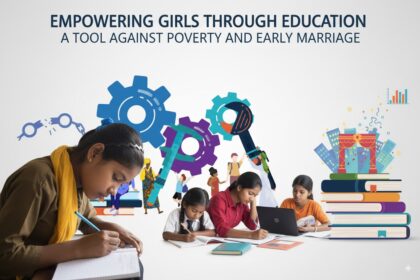AI’s Transformation in E-Commerce and Online Business
Nadeem Iqbal, Professor National Skills University Islamabad, Pakistan
Artificial intelligence (AI) is revolutionizing e-commerce and online business, transforming how businesses operate and engage with customers worldwide, including in Pakistan. Globally, the e-commerce market surpassed $6.3 trillion in 2024, driven by AI technologies that enhance personalization, streamline operations, and boost profitability. In Pakistan, where digitalization is a cornerstone of economic growth, AI-powered e-commerce is creating new opportunities, aligning with the spirit of Independence Day on 14 August to foster a digitally empowered nation. By leveraging AI, Pakistan can strengthen its economy, create jobs, and position itself in the global digital marketplace, reflecting the vision of a progressive and self-reliant country.
AI transforms e-commerce through personalized customer experiences, intelligent search, and efficient operations. Recommendation engines, powered by machine learning, analyze customer behavior—such as browsing history and purchases—to suggest relevant products, boosting sales by up to 15%. For instance, platforms like Daraz in Pakistan use AI to tailor product suggestions, increasing customer satisfaction and conversion rates. AI-driven chatbots, utilizing natural language processing, provide 24/7 customer support, handling inquiries and reducing cart abandonment rates, which globally average 70.19%. In Pakistan, these chatbots enable small businesses to scale customer service without high costs, fostering trust and loyalty. AI also optimizes inventory management by predicting demand, reducing stockouts, and cutting costs by 20-30%, as seen in global platforms like Shopify, which are increasingly adopted in Pakistan.
In Pakistan, e-commerce contributes significantly to the economy, with online retail sales projected to reach $6 billion by 2025. AI-driven platforms like Daraz and local marketplaces support small and medium enterprises, creating jobs and boosting exports. Freelancing platforms such as Upwork and Fiverr enable Pakistanis to earn dollars through AI-related services like digital marketing and software development, with IT exports exceeding $3.5 billion in 2024. These earnings strengthen foreign exchange reserves, mirroring the $30 billion in remittances that bolster Pakistan’s economy. AI enhances operational efficiency, reduces costs, and empowers businesses to compete globally, aligning with Pakistan’s Digital Pakistan vision and the economic self-reliance celebrated on 14 August.
Enhancing AI adoption in Pakistan’s e-commerce requires strategic steps. Improving digital infrastructure, such as high-speed internet and mobile payment systems like JazzCash, is critical, especially in rural areas. Government initiatives, like the e-visa system and Digital Pakistan, support this growth. Training programs in AI, machine learning, and digital marketing can equip the youth with skills for freelancing and e-commerce entrepreneurship. Ensuring data privacy and compliance with regulations like GDPR builds consumer trust. Promoting AI tools for small businesses, such as automated pricing and inventory systems, can enhance competitiveness. These efforts align with the national pride of 14 August, showcasing Pakistan’s potential to lead in the digital economy.
Independence Day in August is a vibrant opportunity to promote AI-driven e-commerce. Celebrations featuring flag-hoisting, parades, and cultural events in cities like Islamabad and Lahore attract domestic and international attention. Digital campaigns during these festivities can highlight e-commerce platforms, showcasing local products and AI-powered services to global audiences. Events at landmarks like Minar-e-Pakistan can integrate virtual tours and online shopping promotions, merging cultural pride with economic innovation. These initiatives open doors for e-commerce growth, reflecting Pakistan’s journey toward digital self-reliance.
The BS Fintech and E-Commerce program at the National Skills University (NSU) Islamabad is pivotal in this transformation. This four-year program equips students with skills in digital marketing, blockchain, and online payment systems, enabling them to develop AI-driven e-commerce solutions. Practical training and industry partnerships prepare graduates for roles in startups and tech firms, while freelancing opportunities allow earning during studies. This learn-and-earn model empowers students financially and supports Pakistan’s digital economy, embodying the spirit of August by fostering innovation and economic independence.
AI’s transformation of e-commerce is reshaping Pakistan’s economy, creating jobs, and enhancing global competitiveness. By investing in infrastructure, skills, and digital campaigns tied to Independence Day, Pakistan can amplify its e-commerce potential. This progress honors the vision of a prosperous nation, celebrated each August, as AI paves the way for a digitally empowered future.











